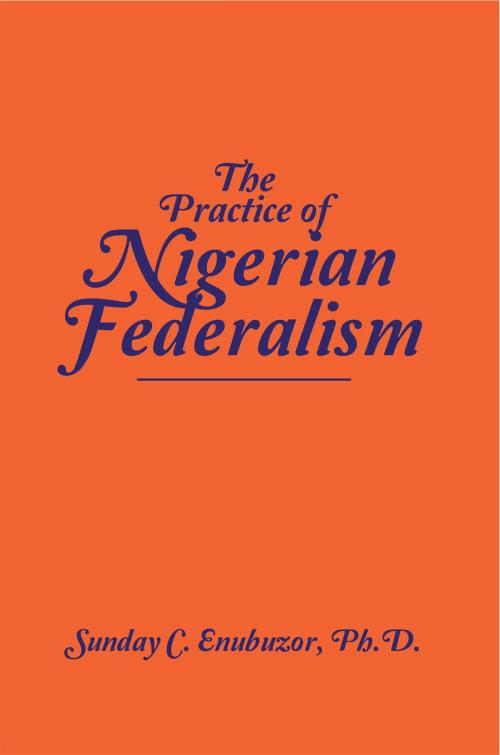| Author: | Sunday C. Enubuzor Ph.D | ISBN: | 9781469181387 |
| Publisher: | Xlibris US | Publication: | March 14, 2012 |
| Imprint: | Xlibris US | Language: | English |
| Author: | Sunday C. Enubuzor Ph.D |
| ISBN: | 9781469181387 |
| Publisher: | Xlibris US |
| Publication: | March 14, 2012 |
| Imprint: | Xlibris US |
| Language: | English |
Nigeria as a federal Republic is made up of thirty six States. Although, the practice of federalism has been called into question by critics who believed that the federal government is imposing her free-will over the component states with disregard to their sovereignty despite the framers intent in providing the country with a constitution that promulgated shared responsibilities to each levels of government that are embedded with power sharing, revenue allocation, maintenance of public order, and fiscal federalism. However, the attitude and involvement of ruling political powers with ties to the Central or State Governments influences policies decision making which may be contradictory to the system of Nigeria Federalism. This book focused on the historical philosophy of Nigeria and her problems, prospects of the Nigerian federalism, the politics of ethnicity and diversity as a framework of the British Colonialists and the Framers visions for a Unified Federalized State. The military model of governance was largely ignored in this book to strictly focus its intent on the democratic intergovernmental federalism in Nigeria as intended by the framers in drafting a true democracy for Nigeria. Nigerian Federalism is a system of government that is democratic to its core. The framers believed that leadership is always the way forward and in drafting the constitution they placed the impact and quality of leadership (integrity, honesty, commitment, and competency) as the criterion for a strong and innovative Nation.
Nigeria as a federal Republic is made up of thirty six States. Although, the practice of federalism has been called into question by critics who believed that the federal government is imposing her free-will over the component states with disregard to their sovereignty despite the framers intent in providing the country with a constitution that promulgated shared responsibilities to each levels of government that are embedded with power sharing, revenue allocation, maintenance of public order, and fiscal federalism. However, the attitude and involvement of ruling political powers with ties to the Central or State Governments influences policies decision making which may be contradictory to the system of Nigeria Federalism. This book focused on the historical philosophy of Nigeria and her problems, prospects of the Nigerian federalism, the politics of ethnicity and diversity as a framework of the British Colonialists and the Framers visions for a Unified Federalized State. The military model of governance was largely ignored in this book to strictly focus its intent on the democratic intergovernmental federalism in Nigeria as intended by the framers in drafting a true democracy for Nigeria. Nigerian Federalism is a system of government that is democratic to its core. The framers believed that leadership is always the way forward and in drafting the constitution they placed the impact and quality of leadership (integrity, honesty, commitment, and competency) as the criterion for a strong and innovative Nation.















